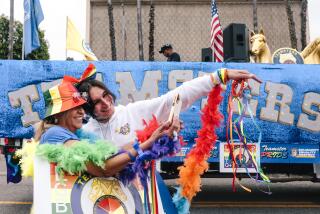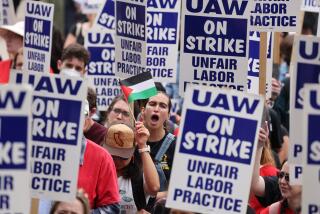Harvard Ends 11-Year Fight, Accepts White-Collar Union
Harvard University President Derek Bok announced Friday that he would not appeal a judge’s decision upholding a union victory at Harvard, clearing the way for the union to begin collective bargaining on behalf of 3,500 clerical and technical workers.
After an 11-year fight, the Harvard Union of Clerical and Technical Workers won a narrow vote in a representation election last May. Soon after the election, Harvard charged that the union had violated the National Labor Relations Act during the campaign.
Stinging Opinion by Judge
But last month, an administrative law judge issued a stinging opinion, rejecting all of Harvard’s objections to the conduct of the election. Harvard immediately criticized the judge’s opinion, giving the impression that it might appeal to the full National Labor Relations Board.
On Friday, however, Bok said he would not appeal because he did not believe “the odds of securing a reversal are substantial enough to outweigh the risks of imposing a long and fruitless delay that could frustrate the interests of many of our employees and prejudice constructive relations with the union over the long run.”
“We’re all ecstatic,” said Kristine Rondeau, 36, the lead union organizer, a former Harvard employee who has spent a third of her life trying to unionize these workers.
“Everything that was won here today came from thousands of small acts of personal courage by Harvard workers--from signing a union card, to wearing a button at work, to voting ‘yes.’ . . . I hope our members know that they have themselves to thank for this.”
The union’s members range from secretaries to scientific instrument makers, she said. Eighty-three percent are women.
Before formal collective bargaining begins in January, Rondeau said, there will be a two-month transition period in which the two sides begin to find “new ways of dealing with one another.”
The organizing campaign had been closely watched in labor circles because it was viewed as a key test of labor’s ability to recruit white-collar workers and because issues in the campaign, such as pay equity and child care, are likely to be critical in union campaigns in the coming decade.
Victory Called Enormous
“The Harvard victory is enormous and broadly meaningful--and will help women in workplaces all over the country,” said Gerald McEntee, president of the 1.1-million-member American Federation of State, County and Municipal Employees, with whom the Harvard union is affiliated.
The campaign contained incongruities, prime among them the vigorous opposition to unionization by Bok, a former labor law professor who co-wrote a 1970 book that praised unions for “securing better treatment for their members in the workplace.”
Bok said earlier this year that he had not changed that view but believed that Harvard’s operating flexibility might be harmed if these workers were unionized. There are seven other unions at Harvard, all representing blue-collar workers.
Average pay among employees in the new union is $18,500, which Harvard asserted was good for the Boston area. But union organizers said Harvard, with a $3.85-billion endowment, could do better, and pro-union employees wore buttons that proclaimed “We Can’t Eat Prestige.”
More to Read
Sign up for Essential California
The most important California stories and recommendations in your inbox every morning.
You may occasionally receive promotional content from the Los Angeles Times.










